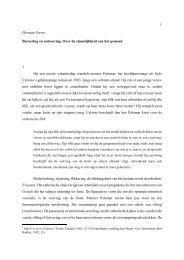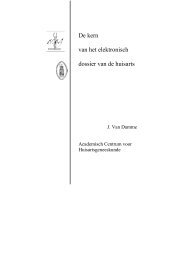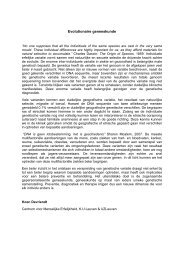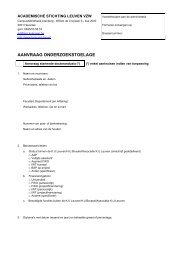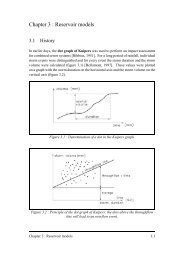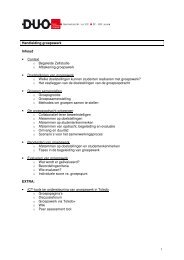EQUALITY GUIdE - KU Leuven
EQUALITY GUIdE - KU Leuven
EQUALITY GUIdE - KU Leuven
Create successful ePaper yourself
Turn your PDF publications into a flip-book with our unique Google optimized e-Paper software.
Chapter 2 ! Career paths: recruitment ! promotion ! dismissal 115<br />
Governors of UGent. Through this action plan the initial impetus was given to do<br />
something about the loss of (female) talent. The aim was to get the support from the<br />
faculties and university board for the start of a gender policy at UGent. After discussion<br />
in the Board of Governors, the advices together with the action plan and the survey<br />
results were published on the website of the Centre for Gender Studies. The complete<br />
UGender report can be consulted and downloaded by all UGent staff members on this<br />
website.<br />
4.5. Conclusions and recommendations<br />
4.5.1. Conclusions about the Survey UGender<br />
The results clearly indicate a gender difference in the perception of whether or not<br />
gender-related problems exist at Ghent University. Female pre-docs experience less<br />
gender-related problems than other academic women. Since this group is at the bottom<br />
of the academic ladder, most of them have not yet experienced promotion opportunities.<br />
Women higher on the academic ladder claim to experience gender-related problems,<br />
indicating that there is a promotion problem for women at the university. Moreover,<br />
the most ‘negative’ answers to the gender statements were given by the group of<br />
female post-docs, which is exactly the group in which a lot of women ‘disappear’ from<br />
an academic career. Subsequently, taking action by organizing mentoring programmes<br />
for female post-docs is a very important policy advice.<br />
The survey results also show that a lot of women and men do not have a clear view on<br />
promotion at UGent. An effect of the old boys’ networks and the glass ceiling is that<br />
gender differences are primarily found within the highest academic ranks. Within the<br />
ZAP a larger group of female professors answer that they are (were) not informed<br />
about possible promotion conditions and criteria (32% of the female professors as<br />
opposed to only 14% of the male professors). This gender difference is also found<br />
within the higher grades of the ATP. Yet another result from the survey is that only a<br />
third of the academic staff finds the appointment and promotion system clear. Again<br />
gender differences are found mainly within the highest ranks: the largest group of female<br />
professors thinks this system is ‘neither clear, nor unclear’; the largest group of<br />
men thinks this system is fairly clear.<br />
Making all the regulations available on the university’s website alone is not transparent<br />
enough. At the same time the results of the promotion part show the significance of the<br />
old boys’ network: in comparison to women, men think they are better informed about<br />
promotion, and they report a clearer view on the career and promotion policy at<br />
UGent as well as on their own promotion prospects.



